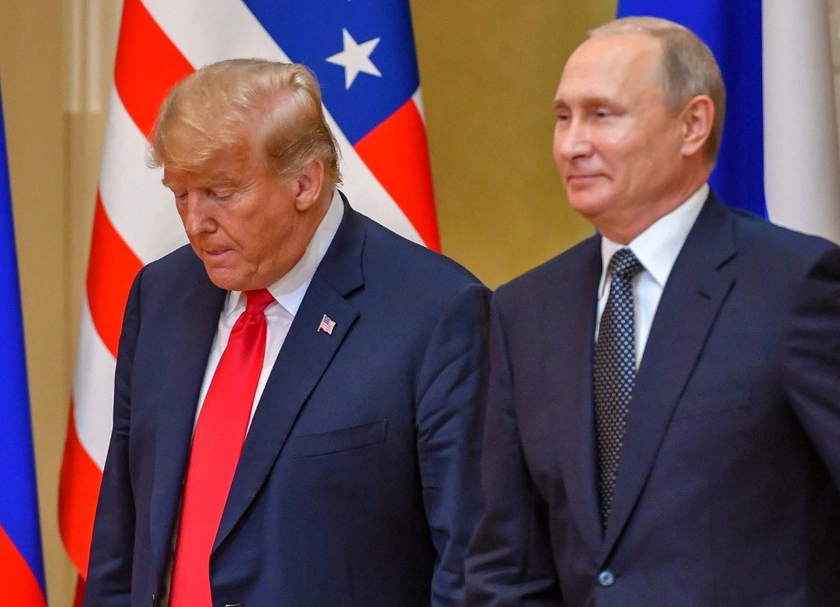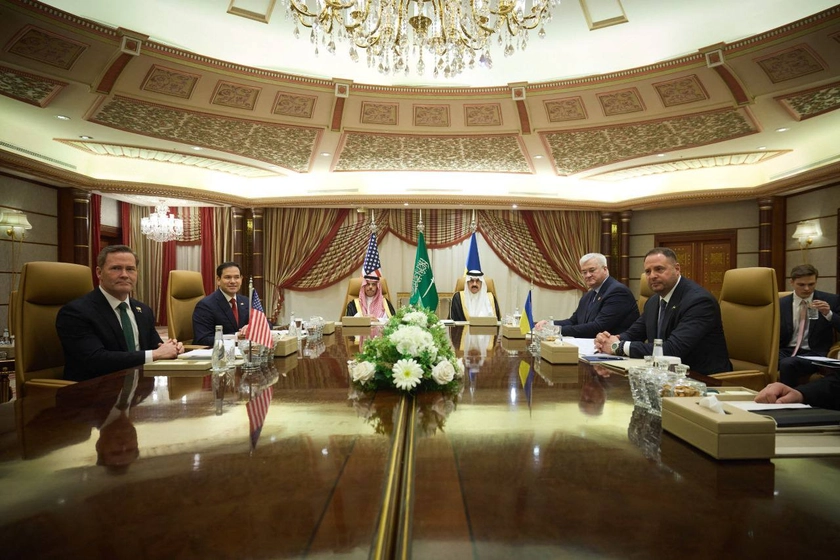Over the past eleven months, the world has changed radically, and this intensity of change will inevitably continue in the near future.
Russia's full-scale invasion of Ukraine, and the scale, brutality, impudence and impunity of Russians waging the war, are sadly becoming commonplace in our new world.
JOIN US ON TELEGRAM
Follow our coverage of the war on the @Kyivpost_official.
Russia strikes infrastructure facilities, kills children, bombs schools and hospitals, commits sexual violence, loots houses, engages in nuclear blackmail and occupies nuclear power plants. It conducts war crimes while the whole world is watching.
This is the first war where the world can see all of these crimes while they are being conducted. This is the first war which has been recorded on millions of phones, on tens of thousands of video and photo cameras and where the evidence has been transferred to open access instantly.
This is the first war when it is possible to find the names and addresses of rapists, looters and murderers by fingerprints in the global network. Such transparency and clarity was difficult to find in previous wars.
Another characteristic of this war is the extraordinary, almost phenomenal self-organization of people into aid communities, whose main features are decentralization, autonomy and impressive efficiency.
In addition, the uniqueness of such horizontal entities lies in their global solidarity – millions of people of different nationalities, races, and identities around the world joined in helping Ukraine. This is certainly an amazing phenomenon that will be studied for years after the victory of Ukraine.
Trump’s Efforts to Brown Nose Putin Continue
One of the reasons for this worldwide involvement lies precisely in the fact that people can instantly understand who is who in this war. The availability of information through social media, direct contact with refugees who are witnesses of crimes, and finally the opportunity to go to Ukraine on one’s own and see everything with one’s own eyes create a situation of strong public support for Ukraine by citizens of various countries around the globe.
The world has changed a lot in the last 30 years, but Russia has not managed to change in 300 years. Neither the methods (total destruction, mass rape, glorification of war, justification of violence), nor the behavior of the Russians (in the range from "we support the Führer" to "we can't do anything") have changed.
At the same time, this war has surprised many by the relative speed with which certain political decisions have been made. Sweden, which for decades, generation after generation, perceived neutrality as its core element, and where talks about joining NATO were seen as rather marginal anarchism as early as February 2022, in half a year is already waiting together with Finland for final confirmations of NATO membership, Moreover, together with other countries Sweden continues providing the necessary weapons to Ukraine.
Wars become a litmus test to check the efficiency of institutions that were created after the Second World War to promote and maintain peace. Many of them have turned out to be dysfunctional because they are unable (or unwilling?) to recognize and accept the rapid changes that these times require in order to survive.
Dysfunction of the United Nations
I recall attending a meeting at the United Nations headquarters dedicated to the situation with Crimea and the Crimean Tatars – people whom Russia tried to suppress after its occupation of the peninsula because they were the leading force opposed to occupation. The feeling that did not leave me after this discussion was its awkwardness and carnivalization.
There was a form, there was a protocol. The speaker spoke, the collective listener listened. Everything was recorded and necessary reports were delivered. Was there at least some therapeutic effect from this meeting? I personally did not notice any. On the contrary, I was left with the feeling that it was a useless convention.
Another thing that remained as an observation was the grotesque ethnicization of the collective Self. Some attendees wore feathers on their heads and others were dressed in ethnographic costumes. It was clear that these people did not dress like this in everyday life – it was done on purpose because there was no other way to be noticed and heard. This was a cry for survival and a grotesque articulation – and all for the sake of telling stories about the crimes of the stone age in the institution of the last century. Therefore, the image of a sad carnival remained after leaving the institution.
We are getting used to the unspeakable tragedy, to deaths and to terrorism, while Russia continues conducting fundamentally inhuman actions without being held accountable for its crimes.
How is it possible that after the systemic war crimes in Mariupol, Bucha, Kharkiv, Kherson and Dnipro, the UN was reluctant to finally get what was required from it – to at least block Russia’s presence in the organization?
I still have the same feelings: the UN exists just to continue its existence for its own sake. What is its value? Why should citizens' taxes go to an institution that causes harm by its inaction?
If the UN wants to survive and overcome this crisis, the first thing it should do is to finally deprive the Russian Federation of its status as a permanent member of the UN Security Council and exclude it from UN membership.
Russia systematically violates the UN Charter, therefore, legally and morally, it has no right to be a privileged member of the group of countries responsible for peace on the planet.
In fact, the Russian Federation uses its only available tool – the right of veto in the UN Security Council. Any action that could stop Russia's further aggression is blocked by Russia itself. By using its veto power, Russia takes advantage of the ineffectiveness of this tool to prevent and counter aggression, in turn planning further interventions and invasions.
Paralysis of the UN Security Council
The UN Security Council, as a body responsible for maintaining international peace, is completely paralyzed. The actions of the Russian Federation contradict the concept of a "peace-loving" state. The three decades of its illegal presence in the UN have been marked by wars and the seizure of other countries' territories, the forceful change of internationally recognized borders and attempts to satisfy its invasive and neo-imperial ambitions.
The root causes of all these crimes lie not only in Russia's policy of inciting conflicts, but also in its systematic blocking of decisions necessary for their resolution. Since 1991, the Russian Federation has vetoed the UN Security Council 31 times, almost twice as often as any other permanent member of the Security Council.
The most important thing is that Russia does not have any legitimate right to be a part of the UN, because the place occupied by Russia belonged to the USSR. After the USSR collapse, the transition of the chair was not properly formalized, and the UN charter does not contain the words “Russian Federation” at all. This phrase is also absent in Article 23 of the Statute, which lists the permanent members of the Security Council.
It's time to proceed with the easy steps: mark Russia as a “temporarily suspended member” and freeze its status in the expected manner. Proceed further.
The only argument I have heard in favor of supporting this institution is that there is no other more effective one, and this one, somehow, deters aggression. It seems to me that the scale of genocide, ecocide, urbicide, nuclear threats, mass deportation, mass torture and terrorist attacks, which Russia has been openly perpetrating for almost a year, should suggest that a very concerned institution should immediately frankly admit their weakness and inefficiency.
The UN needs new leadership and new management that will be ready to make the urgent changes that these extremely difficult times really need. Only the above-mentioned required actions will help the UN to overcome its deep crisis and become a stronger and more reliable institution. If not, then the UN will collapse as the Russian Federation will do.
What about the UN's humanitarian role?
In order to justify the work of the organization per se, it defenders argue that at least it has critical functions in the humanitarian sphere. Yes, it functions as any organization would have functioned with a budget of over $3 billion. However, the efficiency and cost-effectiveness of its operations also gives rise to strong concern.
How much of the budget is allocated to administrative expenses? The official line is that it is only 10-20%. However, taking into account that projects cost millions, administrative expenses cost hundreds of thousands. Over inflated salaries, DSA’s (Daily Subsistence Allowances) , the need to buy new vehicles and equipment, travel all cut significantly into what a relatively small group of donor countries provide the UN to face humanitarian challenges.
How much does the person who leads hthe Secretary Seneral's Twitter earn? Or the How the content-makers of the official UN page being paid for reproducing the form that really has almost zero meaning?
"I do not see an end of the war in the immediate future " or " I do not see a chance at the present moment to have a serious peace negotiation between the two parties."
These are just random examples of important statements attributed to Mr. Guterres. Hardly what the world needs from a UN Secretary general.
Alina Zubkovych is Director of the Nordic Ukraine Forum.
The views expressed are the author’s and not necessarily of Kyiv Post.
You can also highlight the text and press Ctrl + Enter












